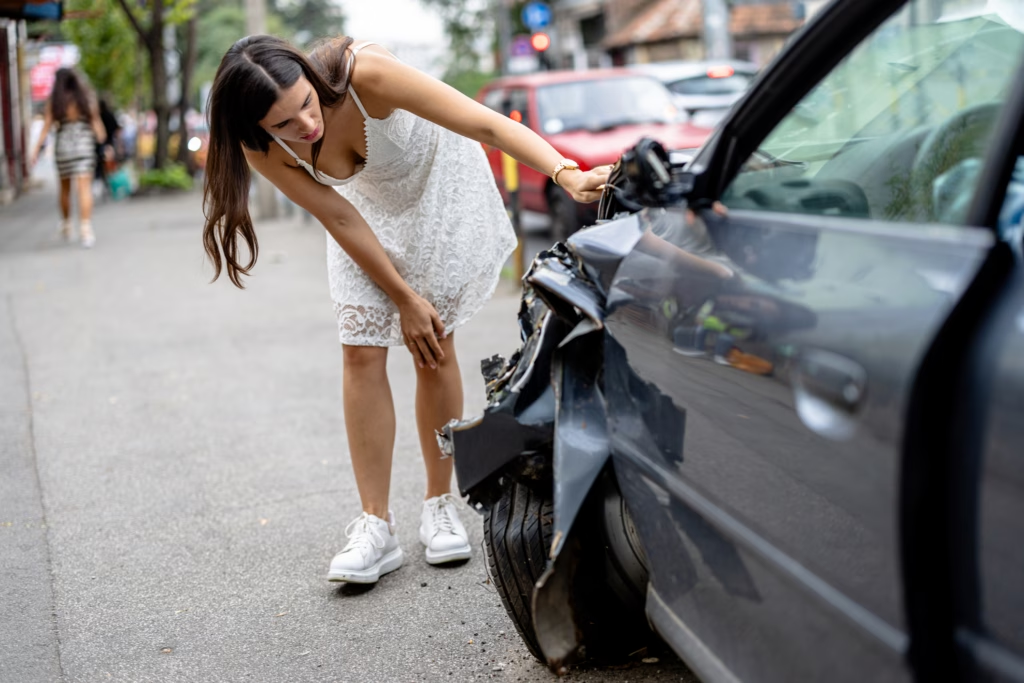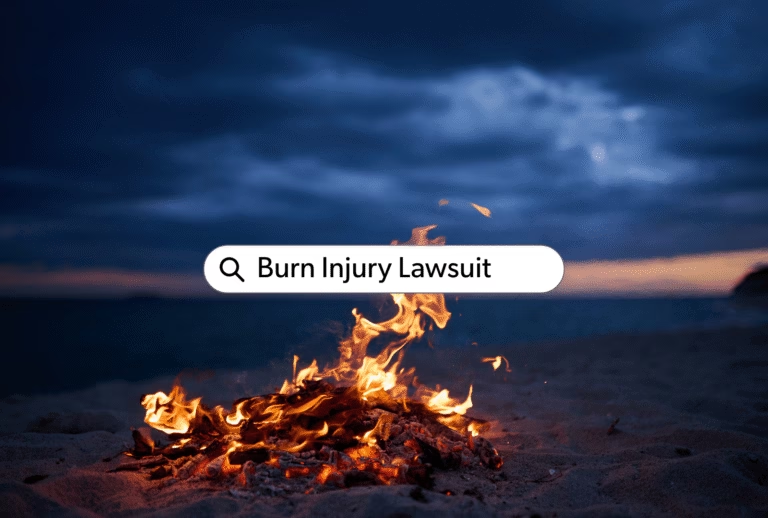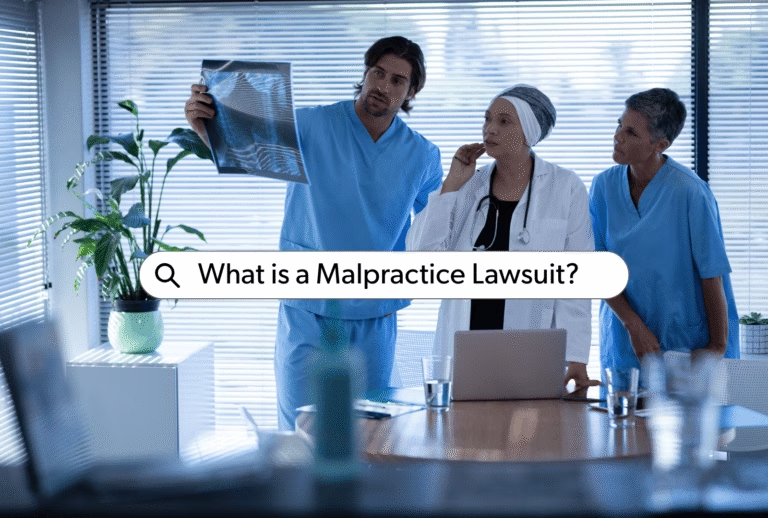In most cases, auto insurance follows the vehicle, not the owner, which means your insurance is likely to cover damages if someone else crashes your car. However, the driver’s responsibility and your coverage depend on several factors, including whether they had permission, their driving record, and any state-specific rules.
Lending your car can still carry risks, especially if the driver is uninsured, underage, or not listed on your policy, as you could be held financially liable for damages beyond your coverage limits. Understanding how claims are handled, who pays for damages, and what steps to take after an accident can help car owners protect themselves and avoid unexpected expenses.
How Liability Works When Someone Else Drives Your Car
If someone else crashed your car, who pays for the damage or injuries? In most cases, the car owner’s insurance policy is the primary coverage, since insurance generally follows the car rather than the driver. The owner’s liability insurance would typically pay for any injuries or property damage caused by the accident.
If the cost of the accident goes beyond what the owner’s policy covers, the driver’s own car insurance (if they have it) may act as secondary coverage. Additional car insurance can help cover the remaining damages, but only up to the driver’s policy limits.
If neither the car owner’s car insurance nor the driver’s policy is enough, the injured parties could try to recover costs directly from either the car owner, or the driver. That’s why lending a car always carries financial risk.
Common Scenarios, Fault Rules, and Next Steps
There are a variety of scenarios that could influence the steps after an accident:
- With permission: If the driver had the owner’s permission to use the vehicle, the insurance claim typically follows the standard process, with the car owner’s policy applying first.
- Without permission: If the driver took the car without authorization, the insurance company may deny coverage, and the driver could be personally responsible for damages.
- Teen or household member: Some policies have special provisions for family members or minors in the household, and coverage may vary depending on whether they were listed on the policy.
- Out-of-state accidents: When accidents occur outside the state, the rules of that jurisdiction can affect how claims are processed, particularly if liability and minimum coverage requirements differ.
Fault and State Laws in California
California is an at-fault state, which means the insurance of the driver who caused the accident is responsible for covering damages. If someone else crashes your car and is found at fault, your insurance typically pays first, but the driver’s insurance may help if damages exceed your policy limits.
California also follows comparative negligence, meaning fault can be shared between drivers. For example, if another driver is found 70% at fault and the person driving your car is 30% at fault, compensation is reduced according to those percentages.
Steps to Take After the Accident
After an accident, the first priority is safety. Check for injuries and call 911 if medical help or law enforcement is needed. Once it’s safe, gather as much information as possible, including the police report, contact details for all parties involved, witness statements, and photos of the scene. It’s also critical to notify insurance, and contact a law firm like Lawyers for Justice, P.C. to help you navigate the process.
How Claims are Paid
Usually, the insurance of the at-fault driver is responsible for paying the claim. When an accident happens, insurance companies decide how to cover damages based on liability and the policies involved. In many cases, the car owner’s insurance will cover medical bills, property damage, and liability claims up to its policy limits. If the policy limits are exceeded, the driver’s own insurance may provide secondary coverage.
The process often starts with filing a claim through the car owner’s insurer, which will investigate the accident and determine how much to pay. If multiple policies apply, insurers may work together to decide how costs are shared. In some cases, if coverage is denied or damages exceed all available insurance, the injured party might pursue compensation directly from the driver or car owner in court.
Protect Yourself Before Lending Your Car
Before handing over the keys, it’s important to take precautions that reduce financial risk and prevent problems later. Start by reviewing your auto insurance policy for any exclusions or coverage limits, since not all policies protect against accidents caused by every driver or circumstance. Only lend your car to trusted, licensed drivers who have a history of safe driving, as allowing an inexperienced or reckless driver to use your vehicle could increase liability. For added protection, consider purchasing an extensive insurance plan, which extends coverage beyond standard auto policies and can help if damages exceed your limits. Finally, remember to give clear permission, and even document it in writing so there is no dispute about whether the driver was authorized to use the vehicle.
How an Accident Affects the Car Owner
Even if someone else was behind the wheel, the car owner can still feel the impact of the accident. Since auto insurance usually follows the vehicle, the owner’s policy is often the first to pay for damages. That can lead to higher insurance premiums, deductibles, or even coverage disputes, depending on the policy. Even if you are not the person driving your car, an accident may still be tied to your insurance record.
In some situations, the owner may also be held financially responsible if the driver was uninsured, underinsured, or not listed on the policy. Liability concerns can arise if the driver was using the vehicle without permission or engaged in reckless behavior. Lending out a car always carries some risk, even to a trusted friend or family member.
When to Consult a Personal Injury Attorney
Any time you’re in a moderate to severe motor vehicle accident, you should consider consulting with an attorney. Navigating insurance can be difficult. A skilled personal injury law firm can give you the best chance at fair compensation for emotional injuries as well as physical ones. A well-established law firm like Lawyers for Justice, P.C. is equipped to handle any personal injury case.
Car accidents can be expensive. Between medical expenses, lost wages, and property damage, even a small crash can be expensive. Without an attorney, it can be difficult to navigate the claim process.
If you or someone you know was in a motor vehicle accident recently, call (818) JUSTICE for a free consultation.
Accident While Driving a Borrowed Car – FAQ
What happens if someone drives my car without permission and gets into an accident?
If someone takes a car without permission and causes an accident, insurance coverage may be denied since most policies only apply when the owner consents to the driver’s use. In cases of non-permissive use, the unauthorized driver and their insurance (if any) are typically responsible for damages as opposed to the vehicle owner’s insurance.
Whose insurance pays if someone else crashes my car?
In most cases, auto insurance follows the car, not the driver, which means the vehicle owner’s insurance is primary when someone else crashes it with permission. The driver’s own insurance may provide secondary coverage, but only after the car owner’s policy limits are reached.
Does my insurance cover another driver using my car?
Yes, most auto insurance policies cover another driver using the car if they had permission, which is known as “permissive use.”
Am I liable if my friend causes an accident in my car?
Yes, as the car owner, liability generally falls on the insurance tied to the vehicle, even if a friend was driving. If damages exceed the policy limits, the driver’s own insurance may help, but both the owner and driver could face financial responsibility.
Does insurance cover my teenager or household member driving my car?
Insurance usually covers a teenager or household member driving the car, but most insurers require them to be listed on the policy. If they are not disclosed, coverage could be limited or denied, and premiums may increase once they are added.
What if my car is in an accident out of state?
If a car is in an accident out of state, the insurance typically adapts to meet the minimum coverage requirements of that state. However, claim handling and liability rules may differ depending on whether the state follows at-fault or no-fault laws.
Can I be sued if someone else crashes my car?
Yes, you can be sued if someone else crashes your car, especially if the damages exceed insurance limits. Your insurance will usually pay for the accident up to your policy’s coverage limit. However, your insurance company may not provide coverage if you did not give them permission to drive your vehicle. You may also face liability if you negligently entrusted the vehicle to an unsafe or unlicensed driver.
Should I add regular drivers of my car to my insurance policy?
Yes, regular drivers such as household members or anyone who frequently uses your car should be added to the insurance policy. Disclosing drivers in addition to the vehicle’s owner helps ensure coverage for the other driver.



